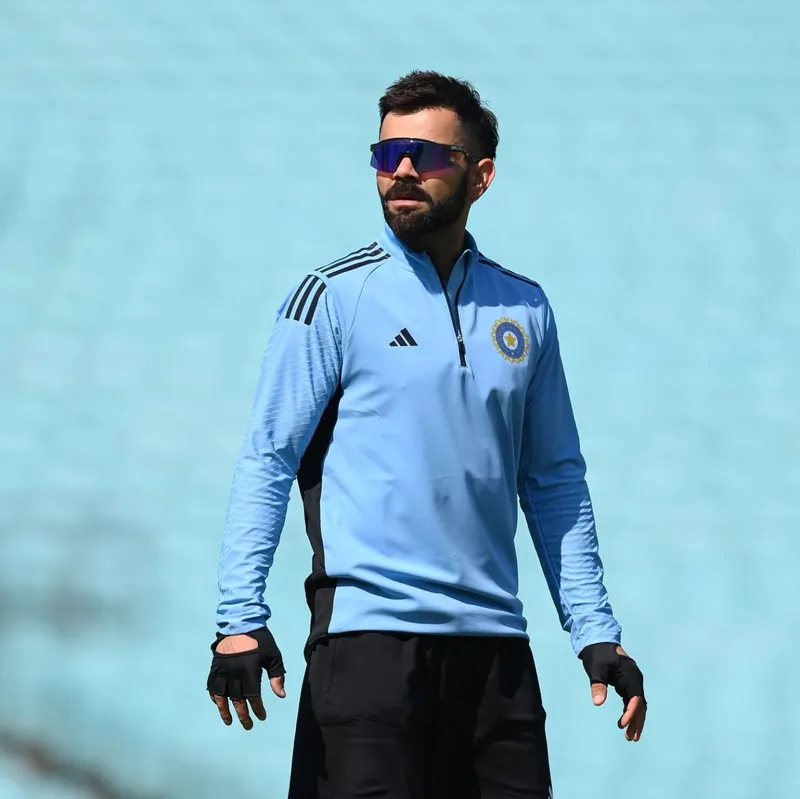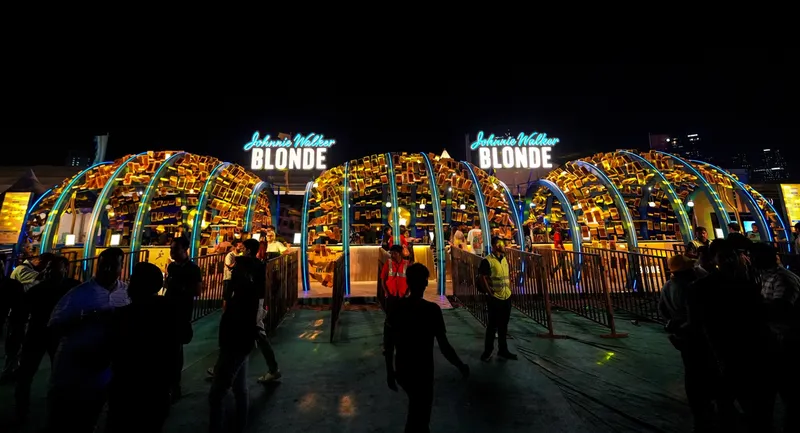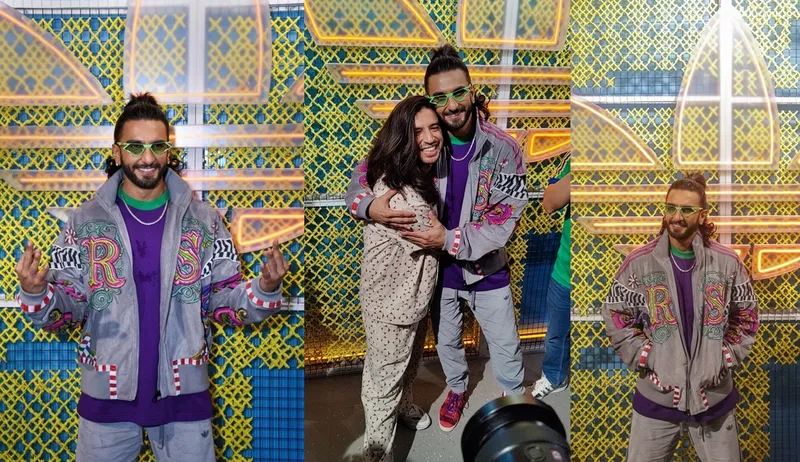Skip Pinterest, look in our backyard for inspiration, says Aaquib Wani, who designed India’s T20 World Cup jersey
With clients including Apple Inc, Lollapalooza, Coca Cola, and Nita Ambani, Delhi-based Aaquib Wani is re-defining India’s design philosophy, with inspiration from the crafts of India.
“India winning the 2024 Men’s T20 World Cup final wearing a jersey that I had designed!” exclaims Aaquib Wani, without a second thought, when I ask him about the most significant milestone of his decade-long career as a professional designer.
The designer from Delhi is not what one would expect a person of his popularity to be. Wani is chatty, warm, and has an almost child-like-attitude.
His Instagram profile is, much like him, quirky and colourful. It also showcases the work the celebrity designer has done with the who’s who of the country—from Virat Kohli, Rohit Sharma and Nita Ambani to Ranveer Singh, Ritu Kumar, and Ananya Panday.
As he logs into the video call for this interview, the first thing that strikes me is his hair—dark, silky and voluminous.
Working in the design industry is no cake-walk; the challenges and creative blocks that come with it might make one want to pull their hair out! Wani is clearly not doing that.
I enquire about his coping mechanism.
“I have a Dyson (vaccum cleaner) that I’m madly in love with! I use it whenever I want… It keeps me at peace to be very honest!”
So I am not alone, I ponder, as I recall all the times I have cleaned random corners of my house, unable to find inspiration for my writing.

Aaquib Wani
“But you know, no such thing exists,” he interrupts, referring to ‘creative blocks.’
“Of course, I had them before and kept wondering why I procrastinated or kept running away from it, but over time I have realised you just have to get to it and finish the work.
“Doesn’t matter if it’s good or bad. Just do it and send it across. That’s how I see it now. Even though I am not 100% there yet, I don’t miss a deadline anymore … just to be able to keep the trust of my client,” he explains.
But what if one is not able to give 100%?
“Sure the client will get back and say they don’t like it and suggest changes, but at least it allows me to buy some time and better understand what my client wants… Just that one conversation sometimes helps you get another idea.”
Wani runs the New Delhi-based studio Aaquib Wani Design. A pioneer in creating immersive experiences across the fashion, art, hospitality and music industries, he has curated installations for several events including Lollapalooza India, Serendipity Arts Festival, and Bacardi NH7 Weekender.
He has worked with brands such as Apple Inc (for the Beats India launch), PVR, Levi’s, MG Motors, Nestle, Budweiser, Superdry, and Coco Cola. He has collaborated with Adidas to design the official kits for the Indian cricket team and worked closely with Nita Ambani for the National History Museum and the weddings of her children Isha and Akash Ambani. India’s Olympic jersey is also his work.
But before making it big, Wani failed. Not once, but a few times, including failing in 11th standard twice. He also didn’t get into a design school to pursue a professional degree.

Virat Kohli in a Addidas X Aaquib Wani training kit
Seeking inspiration outside the classroom
Born and raised in Kashmir, Wani was first inspired by the flair of the self-taught Kashmiri artisans who created shawls and carpets in intricate designs. His father was also in the business of Kashmiri arts and crafts; so it was natural for Wani to turn to design.
“I would be excited and amazed to see how they (artisans) would come home for briefs, and then return after six months with those art pieces… And they were coming from a place of not having any design education!,” he says.
The ‘self-taught’ theory stayed with him throughout school when Wani picked up everything besides his academic books—especially pencils and notebooks to replicate the carpets’ designs. He also worked on his school’s annual day preparations, attended music classes, and learned to play the guitar to be a part of the school orchestra.
“In 11th standard, I was doing pretty much everything but studying. And when the results came in, I scored 47 marks, out of 500. It was nowhere close to you getting grace marks either… It was a slap on my face!” Wani recalls.
The following year, he tried again.

An installation at Lollapalooza India by AWD (Aaquib Wani Design)
“When you have to study the same set of books again, and have the same syllabus, you think you can probably pass with flying colours… So music became an outlet for me,” he says.
“To my surprise, and to my parent’s surprise, I failed again!”
But school had to be completed, and Wani’s parents got him admitted in another school for 12th standard, “thanks to our Indian jugaad (innovative fix),” he laughs.
This time, Wani managed to pass, though he had no intentions of joining college.
Leveraging on his self-taught guitar lessons, Wani started teaching the instrument to children to make money.
Eventually, he formed a band, Phobia, with friends and started touring across cities. It was then that he started making artwork for the band—this marked the beginning of his design career.
In 2009, Wani got a bit of hand-holding in design through his internship as a graphic designer at Rock Street Journal. Four years later, he was promoted to the role of art director at the magazine, before he switched gears to work under contemporary designer Sumant Jayakrishnan.
“This is where the world became 3D,” Wani says.
Under Jayakrishnan’s guidance, he worked on vast projects including music festivals, weddings, and exhibitions.
“That was my college,” says Wani.
After five years with Jayakrishnan, he decided to start working on his own.
In 2018, Wani started Aaquib Wani Design.

Ranveer Singh in a custom Aaquib Wani wearable
Art and the future
Wani believes the design that comes out of India is at par with where the world is headed.
“International brands come to India wanting to collaborate with artists and design studios here, and not work with their global teams, which speaks volumes,” he says.
While he is under a non-disclosure agreement with regard to his future plans, Wani is excited about the next edition of Lollapalooza India music festival, scheduled for March this year.
After a decade in the design industry, Wani continues to look back and at the grass-roots for inspiration.
“The crafts of India is where a lot of our projects’ inspiration come from. We don’t need to open up Pinterest for inspiration, it’s right in our backyard!”
Edited by Swetha Kannan







